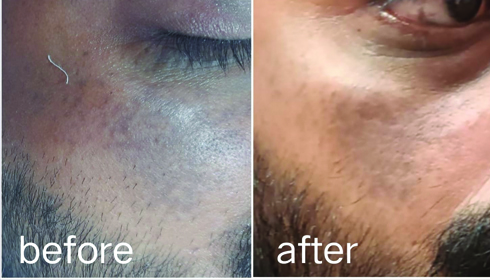
Rising Prevalence of Skin Pigmentation Issues in India Drives Demand for Advanced Solutions
With about 40% of the global population suffering from skin pigmentation concerns such as hyperpigmentation, melasma, or dark patches, dermatologists are stepping up to satisfy the growing demand for novel, long-term remedies. The problem is considerably more severe in India, where skin pigmentation disorders are quite common, particularly among women.
A study of 1,204 women from four Indian cities found that more than 80% had skin colour variability, with various types of hyperpigmented patches widespread. Melasma and post-inflammatory hyperpigmentation (PIH) are substantial contributors to this burden.
Melasma, the most common pigmentary disorder in India, affects 20–30% of women aged 40 to 65, according to doctors. Melasma is characterised by brown- to greyish-brown spots and primarily affects women, accounting for 90 percent of reported cases. Long-term UV exposure, hormonal changes (during pregnancy or contraceptive use), and a genetic susceptibility all contribute to its incidence.
Similarly, PIH, which results from skin injuries or inflammation, is common in India. PIH, which frequently coexists with other hyperpigmentary illnesses, adds to the country's overall pigmentation management difficulty.
Pigmentation diseases have far-reaching consequences for emotional health in addition to cosmetic concerns. Dr. Hema Pant, medical director of Sculpt Aesthetic Clinic, emphasises the psychological impact, noting, "Pigmentation transcends mere cosmetic concern; it's a profound skin issue impacting confidence, emotional well-being, and overall quality of life."
The psychological impact of pigmentation issues has prompted physicians to focus on providing comprehensive remedies. Dermatologists now aim not only to treat apparent symptoms but also to improve patients' quality of life through comprehensive care.
Recent advances in dermatological technology have resulted in significantly better treatment outcomes. Non-invasive laser therapies are transforming pigmentation management, giving patients more consistent and timely outcomes. These cutting-edge treatments specifically target melanin formation, decreasing recuperation time and increasing treatment efficacy.
"For years, patients had few options, but we now offer a wide range of effective treatments," said Dr. Kritika Pandey, senior dermatologist in Gurgaon. "Topics such as hydroquinone, retinoids, and vitamin C have proven extremely successful in eliminating dark spots, levelling skin tone, and avoiding further discoloration. "The true breakthrough is our capacity to personalise treatment strategies for specific skin needs."
Dr. Pandey emphasised the need for personalized care: "It's no longer a one-size-fits-all approach—each patient's skin type, pigmentation severity, and lifestyle are meticulously considered to ensure optimal results."
In addition to lasers, chemical peels and microdermabrasion are gaining popularity for their ability to renew and exfoliate the skin, resulting in a more even complexion.
Dermatologists advise early evaluation and intervention to reduce the long-term impacts. "While pigmentation issues can be daunting, early intervention and appropriate treatments can drastically mitigate long-term effects," stated Dr. Itishree Gupta, a senior cosmetic surgeon in Delhi. "We now have the means to address root causes, be it sun damage, post-inflammatory hyperpigmentation, or hormonal changes, offering solutions that are both safe and effective."
Dermatologists are becoming optimistic as more improved therapies become available. More patients are discovering long-term remedies that not only address their pigmentation issues but also help them regain confidence.
Dermatology is developing more personalised, effective, and safe treatments for pigmentation disorders as education and awareness about them grow. In India, where skin pigmentation issues are particularly prevalent, advances in laser therapy and topical treatments provide new hope to people looking to better their skin health and overall well-being. Dermatologists remain optimistic that these developments will help patients obtain brighter, healthier skin, boosting their confidence.